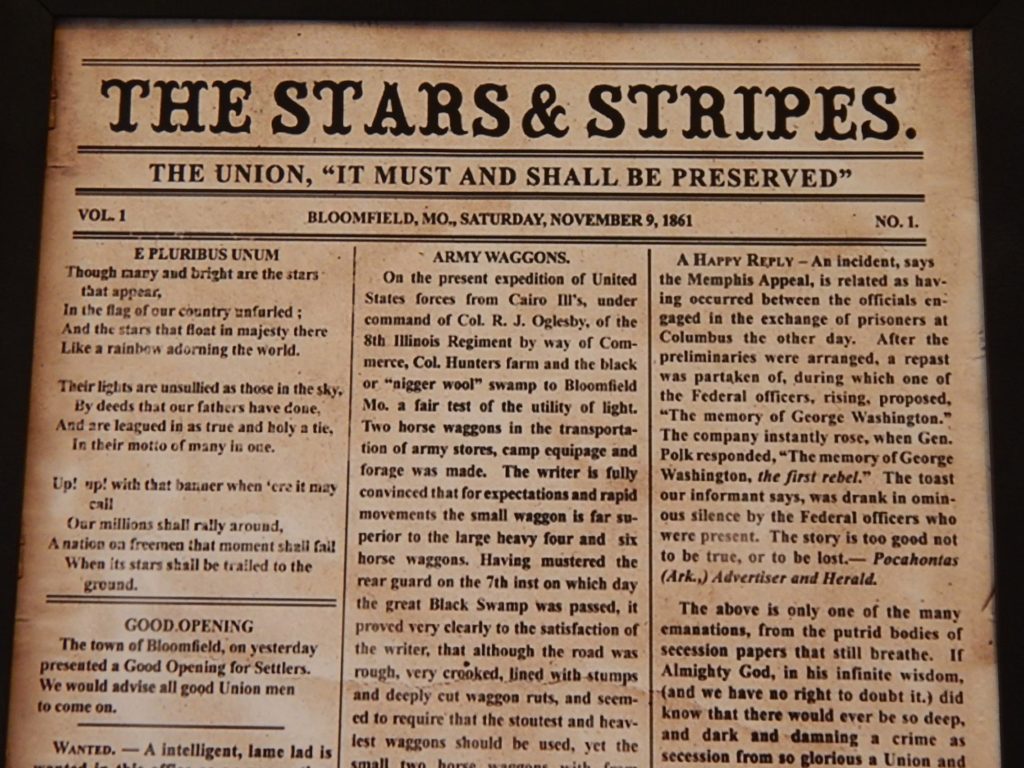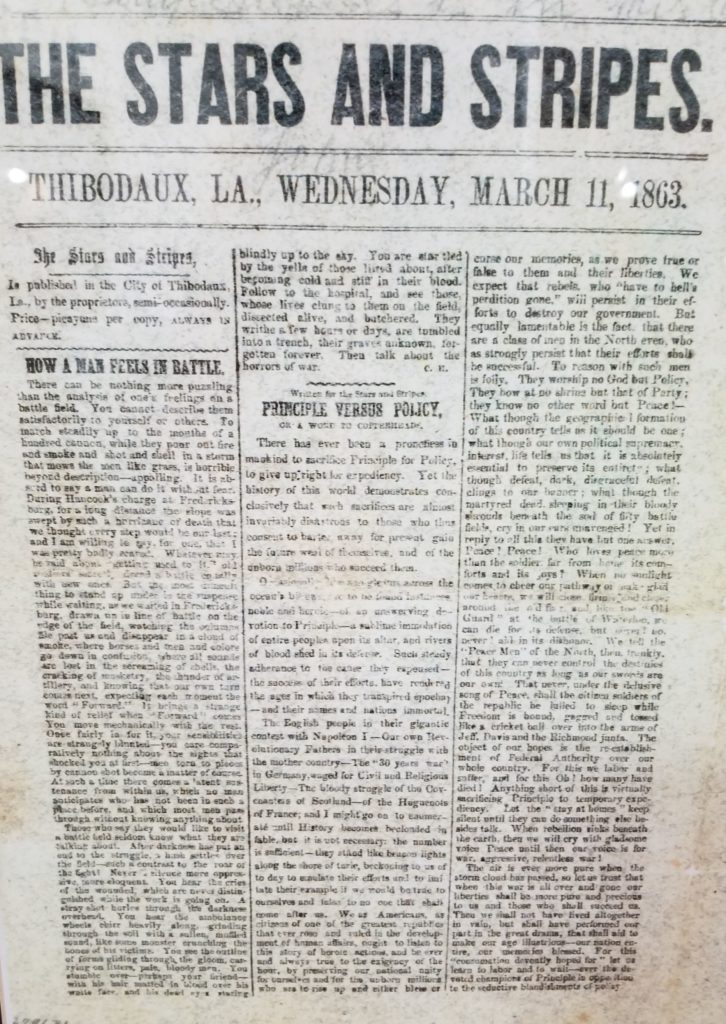On November 7 and 8, 1861, Federal soldiers from Illinois and Iowa entered the nearly abandoned town of Bloomfield, Missouri, and set up their camps. They had temporarily maneuvered the pro-southern Missouri State Guard from the area. Undoubtedly, they were pleased with this accomplishment since many of them were finishing their first military operation. Little did they know they were helping to set the occasion for the beginning of an American military legacy, the birth of the military newspaper, The Stars and Stripes. Here is that story as best we know.
At midnight Saturday, November 2, 1861, Colonel Richard J. Oglesby, commanding officer of the 8th Illinois Infantry Regiment, stationed at Birds Point, Missouri, a small village across the Mississippi River from Cairo, Illinois, received a dispatch from Brigadier General Ulysses S. Grant. He was ordered to take command of an expedition to destroy rebel forces congregated in Stoddard County, Missouri. These rebel forces were under the able command of Brigadier General M. Jeff Thompson of the Missouri State Guard.
Colonel Oglesby began immediately to organize forces that consisted of about 2,200 men from his own regiment and the 11th, 18th, and 29th Illinois Infantry Regiments. On Tuesday morning, this Union command started for Bloomfield, the county seat of Stoddard County. Colonel Oglesby decided on the most direct route even though it meant crossing a huge swamp seven miles wide. The Union forces made this crossing on Thursday, November 7th. One of the Illinois soldiers described the crossing as follows: “The ground was covered with black moss four inches deep and so thick that ‘tis like a carpet. That was an awful gloomy road, and I was glad enough to land at a nice clean stream and have orders to pitch tents.”
General Grant had also issued orders to his forces in Cape Girardeau and Ironton to send troops to Bloomfield. Thus, Yankee forces were converging on Bloomfield from the east, northeast, and northwest. General Thompson, realizing his predicament, withdrew further south into a less precarious position.
The first Union force to enter Bloomfield was the 10th Iowa Infantry, which came from Cape Girardeau and arrived about 10:00 AM on Thursday, November 7th.
This force occupied the small community until noon of the next day when Colonel Oglesby arrived with the first of the Illinois troops. Colonel Oglesby ordered the Iowa troops to Belmont, Missouri, where a battle had been fought on the seventh.
Colonel Oglesby’s command arrived at about 9:00 AM on Friday, November 8. The command was to spend that day and night camped in Bloomfield. During the day, some of the Illinois troops started looting the stores of the town. Colonel Oglesby, in time, sent a police force to have this stopped. One of the soldiers described it as disgusting and listed some of the stolen items: “women’s bonnets, girl’s hats, mallets, jars of medicine, looking glasses three feet long, boy’s boots, flat irons, a nice side table and I don’t know what wasn’t there.”
Another group of Union soldiers noticed the abandoned newspaper office of the Bloomfield Herald. The editor, James O. Hull, a native of New Jersey who had been in the newspaper business in Southern Illinois prior to opening the Herald in 1858, had left Bloomfield with General Thompson’s rebel forces.
During the evening hours, ten of the soldiers entered the Herald. From the diary of Captain Daniel H. Brush of Company K, 18th Illinois Infantry Regiment, we read: “Some printers belonging to our regtt. (sic) and the others have taken possession of the printing office and design (sic) publishing a paper tonight.” These soldiers christened their newspaper THE STARS AND STRIPES.
The following morning, Saturday, November 9, 1861, carriers distributed it to the boys in blue in and around the small town. It is uncertain how many copies were in the first issue, but with over 2,000 troops in their expedition, no doubt the word was, “Read it and pass it on to a buddy.”


